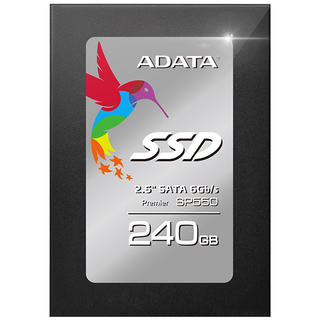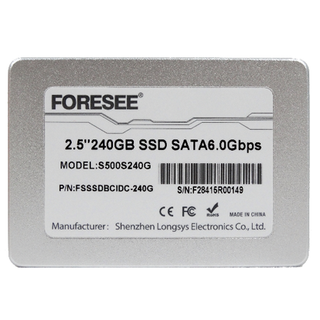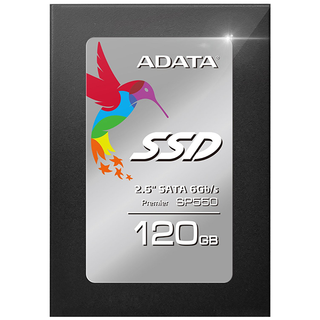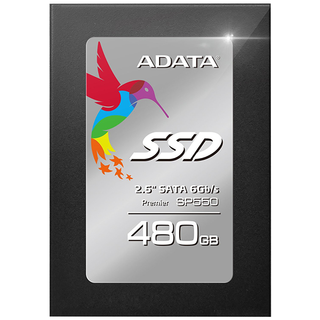Adata SP550 SSD Review
Adata's SP550 is the first SSD to hit our lab with Silicon Motion's new SM2256 controller paired with SK Hynix NAND. But does it compete with Samsung's prolific 850 EVO?
Why you can trust Tom's Hardware
Four-Corner Performance Testing
Sequential Read
To read about our storage tests in-depth, please check out How We Test HDDs And SSDs. Four-corner testing is covered on page six.


We have all three Adata SP550 drives in today's chart. We're comparing them to a large collection of TLC- and low-cost MLC-based models.
Even the newest TLC-based solid-state drives deliver exceptional sequential read performance. What we don't know yet is how well LDPC will fix their errors long-term. The very small lithography processes are susceptible to bit-flip, voltage shift and noisy neighbor errors. As the flash wears, all of those issues should be corrected by low-density parity-check code at the expense of increased latency. In time, the drives will slow down. However, that should be years down the road.
Sequential Write


Since we use light conditioning before running our test suite, many of the SSDs that rely on emulated SLC fall short in our write tests. The SLC buffer is too small for accurate performance measurements since they only facilitate a few moments (often less than two seconds) of accelerated write time.
Higher-capacity SSDs benefit from larger SLC buffers, so it's a little easier to benchmark 512GB+ drives. It doesn't come as a surprise that the 120GB SP550 appears at the bottom of our list. Really, our focus is on the 240GB SP550, since the chart highlights other 256GB-class products.
Random Read



The four SM2256-controlled drives are all lumped together toward the bottom of the random read IOPS chart. Longsys' Foresee S500 240GB joins the Adata SP550s with the same controller. It appears that Toshiba's A19 TLC is a bit faster than SK Hynix's when reading random data. Thus far, the Toshiba flash has proved superior in almost every test.
Random Write


At low queue depths, we clearly see two distinct groups in the random write tests with 4KB data. All three of the drives in the top tier cost about $25 more than Adata's SP550.
It's time to start worrying why the 480GB SP550 hasn't walked away from the lower-capacity models in these tests. The big SP550 has twice as much emulated SLC as most of the other drives, but isn't using it to outperform Samsung's 850 EVO.
Current page: Four-Corner Performance Testing
Prev Page A Closer Look Next Page Mixed Workloads & Steady StateStay on the Cutting Edge
Join the experts who read Tom's Hardware for the inside track on enthusiast PC tech news — and have for over 25 years. We'll send breaking news and in-depth reviews of CPUs, GPUs, AI, maker hardware and more straight to your inbox.
-
Eggz A little boring, but I guess this would be good for a value build with an AMD chip for decent performance at a pretty low cost.Reply -
jjb8675309 The 240GB model is a good value but the 250GB EVO is going for $80 right now, I'd probably get that if faced with the choice.Reply -
Rookie_MIB Currently listing on Newegg for $42/$64/$119 for the 120/240/480GB.Reply
$119 for a good name-brand 480GB drive that performs decently enough is good to see, as a 1TB drive should come in right around the $200 mark.
The only thing is, and it's probably why the 960GB hasn't been released is that based on the performance of the 480GB drive they probably have to put in and validate a different controller. The 4 channel controller would just run out of bandwidth trying to handle all the data and would lose out on the parallelism which makes SSDs as fast as they are. So - they'd need an 8 channel controller for sure which might jump the cost a bit. -
zodiacfml If that's the conclusion then Adata has better SSDs compared to Crucial's latest drives. Samsung pretty owns the market due to being also a NAND manufacturer.Reply





